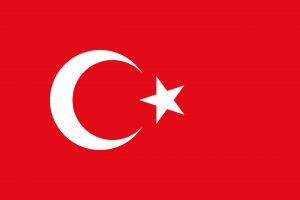Language/Turkish/Culture/Traditions-and-Customs
 Հայերէն
Հայերէն Български език
Български език 官话
官话 官話
官話 Hrvatski jezik
Hrvatski jezik Český jazyk
Český jazyk Nederlands
Nederlands English
English Suomen kieli
Suomen kieli Français
Français Deutsch
Deutsch עברית
עברית हिन्दी
हिन्दी Magyar
Magyar Bahasa Indonesia
Bahasa Indonesia فارسی
فارسی Italiano
Italiano 日本語
日本語 Қазақ тілі
Қазақ тілі 한국어
한국어 Lietuvių kalba
Lietuvių kalba Νέα Ελληνικά
Νέα Ελληνικά Şimali Azərbaycanlılar
Şimali Azərbaycanlılar Język polski
Język polski Português
Português Limba Română
Limba Română Русский язык
Русский язык Српски
Српски Español
Español العربية القياسية
العربية القياسية Svenska
Svenska Wikang Tagalog
Wikang Tagalog தமிழ்
தமிழ் ภาษาไทย
ภาษาไทย Українська мова
Українська мова Urdu
Urdu Tiếng Việt
Tiếng ViệtAs a continuation of our "Complete 0 to A1 Turkish Course," in this lesson, we will be focusing on the cultural aspects of Turkey. Since Turkey has a rich history and has been a home to many civilizations, its traditions and customs are diverse and unique. By the end of this lesson, you will be familiar with some of the essential customs and traditions of Turkey.
Wedding Traditions
Weddings are an essential ceremony in Turkish culture. It is a celebration of the union of two families coming together as one. Here are some of the common wedding traditions that take place in Turkey:
- The Henna Night: It's a pre-wedding ritual celebrated primarily by women. The bride wears a red dress and veil, and guests bring henna, which is used to dye the bride's hands and feet. It's believed that the longer the color stays on the bride, the stronger the love between her and her groom will be.
- Kina Gecesi: It's a celebration that happens on the night before the wedding day. The groom's family brings sweets and pastries to the bride's house, and everyone has tea and coffee together, wishing the couple a happy life.
- Gelin Alma: On the wedding day, the groom and his family go to the bride's house to take her to the wedding hall. The groom must ask for permission from the bride's family to take her. Once they've received permission, they take the bride, followed by the wedding procession.
Funeral Customs
Funerals are a significant ceremony in Turkish culture. It's a celebration of the life of the departed, and it's believed that the more people attend, the better. Some of the customs that take place during a Turkish funeral are:
- The Washing: It's done by family members, and it's believed that washing the body's right side first will bring them to heaven.
- The Dressing: The body is dressed in white to symbolize purity and covering the deceased's face while they are being washed or laid for the burial.
- Kuran Okumak: It's a religious ceremony where a specified person recites a passage from the Quran before the funeral procession begins.
- The Food: It's an important part of Turkish funerals. After the burial, family and friends gather to eat and drink together, sharing and remembering stories about the departed.
Turkish Delights
Turkish cuisine is diverse, and its history dates back to Ottoman times. You will find a unique blend of flavors that will leave your taste buds wanting more. Here are some of the popular Turkish dishes and treats you don't want to miss out on:
- Iskender Kebap: It's a dish made from pieces of lamb or beef cooked on a vertical spit and served on a bed of bread, topped with tomato sauce and melted butter.
- Manti: It's a type of Turkish dumplings filled with spiced ground meat, and it's usually served with garlic-yogurt sauce.
- Turkish coffee: It's a strong and flavorful drink. You drink it slowly, savoring the rich aroma and the taste. Turkish coffee is also renowned for fortune-telling, using the coffee grounds that remain at the bottom of the cup.
- Turkish Delight: This is a classic Turkish treat made of a jelly-like, sugary substance flavored with rose water, lemon, or pistachios. It's a must-try when you're in Turkey.
Music, Dance, and Festivals
Turkey has a rich cultural heritage that is best showcased through its music, dance, and festivals. Here are a few examples:
- Turkish music: Turkish music is diverse and unique. You'll find different styles, ranging from classical Ottoman music to modern pop music. The instruments used range from the oud and saz to the modern guitar and keyboard.
- Folk Dance: There are many different types of Turkish folk dances, each with its unique style and choreography. Some popular examples include the Halay, Düz Havası, and Hora.
- Festivals: There are many festivals to choose from in Turkey, each with its unique theme and celebration. Some of the popular ones include the International Istanbul Film Festival, the International Izmir Festival, and the International Antalya Golden Orange Film Festival.
Conclusion
In this lesson, we've discussed some of the most essential traditions and customs of Turkish culture. From weddings to funerals to Turkish delights, Turkey has a lot to offer. As you continue to learn Turkish, make sure to also immerse yourself in the culture to get a true appreciation of the language and its people.
Sources

